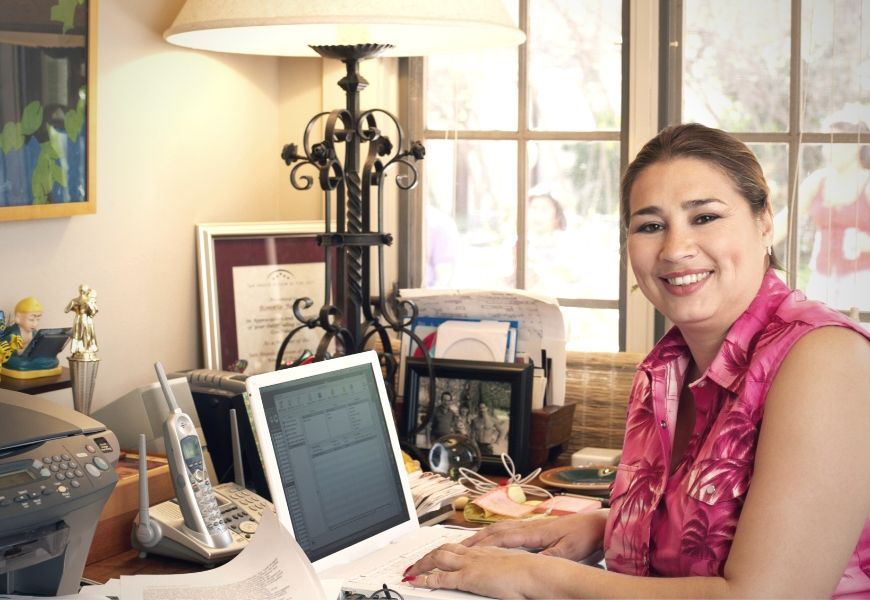 Working from home to provide therapy to students around the country is a dream job! There is no commute, you are in the comfort of your own home, and you have control over your own schedule. To get started, and make your teletherapy dreams come true, there are a few must-haves for your teletherapy office.
Working from home to provide therapy to students around the country is a dream job! There is no commute, you are in the comfort of your own home, and you have control over your own schedule. To get started, and make your teletherapy dreams come true, there are a few must-haves for your teletherapy office.
Essentials for your work-from-home office setup
To be successful working your at-home teletherapy practice, your office setup needs to be comfortable and efficient. Try to have a dedicated space in a low-traffic area – one that you can close the door on after the work day ends. Here are some of the essentials for your home office.1. Reliable internet connectionIf you want to work online, you’ve got to BE online! Reliable, secure, and private internet access is key, so don’t scrimp here. Make sure you have fast download and connection speeds and, if needed, get boosters or hotspots for your home. 2. Computer with camera and micTo do your teletherapy job, you must have a reliable computer, webcam, and microphone. You can either use the camera and mic built into your computer or you can plug in an external camera or mic in. Some therapists opt for a headset with a built-in microphone. These are useful if you have frequent neighborhood noises like lawn care services, delivery trucks, or barking dogsChoose a computer that you know will be able to handle a lot of use, hold a lot of storage (it’s basically your material storage now!) and have good speed. Whether you choose a desktop or laptop, PC or Mac, is up to you. If you really want to deck out your work space, having an external monitor is wonderful. Lifewire says, “The expanded desktop real estate is great for work activities, like comparing documents, writing emails or articles while referring to online research, and general multi-tasking.”3. Good lightingNot always thought of at first, but lighting is crucial. Not only does it make for a more pleasant workspace, but good lighting is known to increase productivity. You also want your students to be able to see you in your best light.If you can place your desk next to a window – not too bright where there is a glare and not too dark where they can’t quite see you. A few tricks are to make sure there are no windows or lights behind you and that you have a natural light somewhere in front of you. According to Highfive.com, you should position your camera at eye-level and keep the positioning constant. They suggest using straight-ahead primary lighting with your primary light source close behind the camera, coming from the same direction your camera is pointing. 4. Comfy chairAt E-Therapy we love getting up with our students to move around during fun activities. But, you will find yourself seated often in teletherapy sessions; you may have back-to-back sessions or short pauses between sessions – enough to type a quick note and log in for your next session. Opt for a comfy, supportive chair designed for maximum support and comfort to keep your back, shoulders and neck happy. 5. Quiet spaceAnd of course, your office space itself is important! Big open spaces with lots of room or tiny little nooks can work for your teletherapy office needs. Just make sure you have a door you can close to keep it private and quiet during those sessions. These are the essentials you need for creating your teletherapy home office. Once you are ready to go, reach out to us! Still wondering if online therapy is for you? Here are some reasons why our teletherapists love working from home and some pros and cons of being an online therapist.Sign up to join E-Therapy: Get started as a teletherapist
